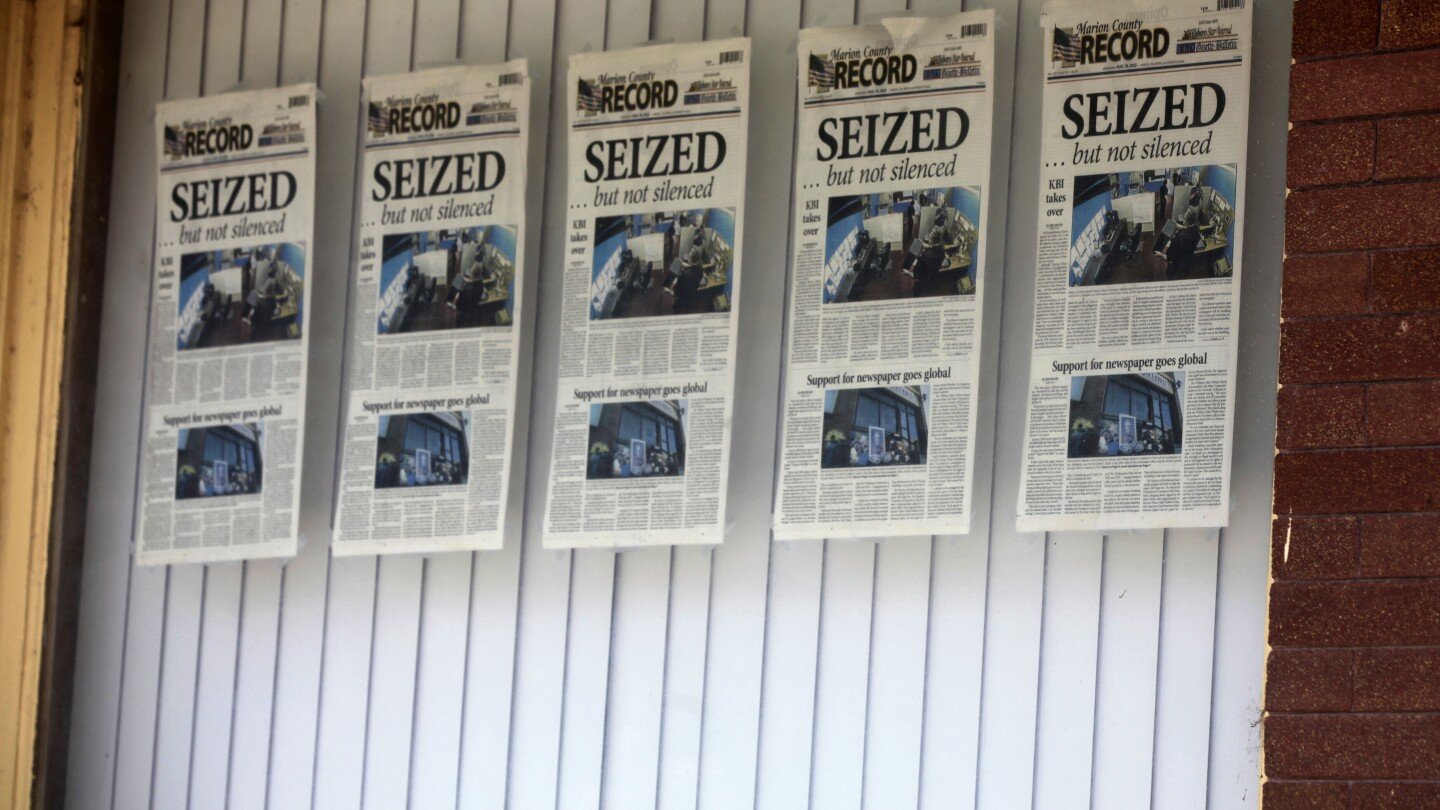Kansas authorities must destroy all electronic copies they made of a small newspaper’s files when police raided its office this month, a judge ordered Tuesday, nearly two weeks after computers and cellphones seized in the search were returned.
The Aug. 11 searches of the Marion County Record’s office and the homes of its publisher and a City Council member have been sharply criticized, putting Marion, a central Kansas town of about 1,900 people, at the center of a debate over the press protections offered by the First Amendment to the U.S. Constitution.
Attorney Bernie Rhodes, who represents the newspaper, said a judge ordered authorities to hand over those electronic records and destroy any copies they have of them along with all photographs that officers took during the raids.
The local prosecutor and sheriff agreed investigators shouldn’t keep that evidence, but Rhodes insisted on a court order to document it. It won’t be clear what files were on the drive until Rhodes gets a copy.



That section does not seem relevant. That’s for government seizures of attorney work product.See:
The section of law cited in the warrant is 18 USC 2721 and context makes clear it’s talking about the newspaper employee’s false certification as to one of the enumerated reasons in section (b)(1)-(14).
Which one of those do you contend applies to newspapers?
This is also not a case of journalists reporting information received unwittingly from a third party who obtained it illegally. That would not be a crime as far as the newspaper is concerned.
Rather, this is a case of a newspaper employee falsely certifying a government form to illegally access records firsthand.
Also, the newspaper admits to police it falsely certified it’s request for information.